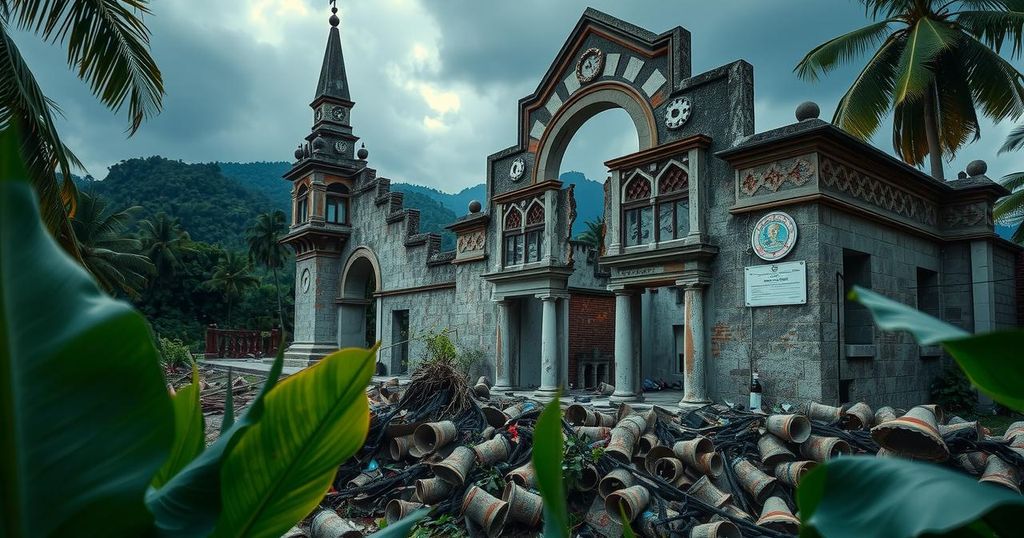DR Congo Investigates Vandalism at Lumumba’s Mausoleum

The Democratic Republic of Congo has launched an investigation into vandalism at the mausoleum of Patrice Lumumba, the nation’s first prime minister, following reports that the coffin containing his tooth was found open. Lumumba, who was assassinated in 1961, remains a vital symbol in Congolese history. His daughter condemned the vandalism, while the culture ministry has secured the site for further inquiries.
Authorities in the Democratic Republic of Congo (DRC) have initiated an investigation following the vandalism of the mausoleum containing the tooth of Patrice Lumumba, the nation’s first democratically elected prime minister. Lumumba, a pivotal figure in the struggle for independence from Belgium, was assassinated in 1961 after a brief tenure in office. The tooth, believed to be his only known remains, was retrieved from Lumumba’s remains by a Belgian policeman and returned to his family in 2022. On the day of the vandalism, local police reported that the coffin housing the tooth was found open but could not confirm if the remains were indeed stolen. Lumumba remains a symbol of the potential achievements in post-colonial Congo, despite the country’s descent into dictatorship following his assassination, which was historically viewed through the lens of Cold War politics. The Ministry of Culture has secured the site and is currently conducting an investigation to determine the facts surrounding the incident and to identify those responsible. Lumumba’s daughter, Juliana Lumumba Amato, condemned the act as a “despicable and incomprehensible act,” emphasizing her father’s sacrifice for the Congolese people. The government has yet to provide further communication following the incident, drawing attention to the ongoing legacy and reverence of Lumumba in Congolese history.
Patrice Lumumba is revered for his role as a nationalist leader who facilitated the DRC’s independence from Belgian colonial rule in 1960. His short-lived premiership ended tragically when he was assassinated in 1961 under circumstances that remain contentious, often linked to Cold War influences. Following his death, Lumumba’s body was defiled, with his tooth being the only significant remnant returned to his family decades later. Lumumba’s legacy is heavily intertwined with the nation’s historical trajectory, marked by struggles against dictatorship and exploitation of its resources.
The vandalism at Patrice Lumumba’s mausoleum raises significant concerns regarding the preservation of national heritage and the respect afforded to pivotal historical figures in the DRC. Although the investigation is underway, the incident underscores the enduring legacy of Lumumba and the complexities surrounding his assassination. Public reactions reflect a deep-seated respect for Lumumba’s contributions, highlighting the need for safeguarding historical sites.
Original Source: www.northweststar.com.au







